Hat: Newman in Chocolate, $245, by Stetson.
Photography Brianna Rolls from Blue Velvet Photography
Sign up to our mailing list for the best stories delivered to your inbox.
The Olympic gold medalist chats to Graziher about her love of the land and how the work ethic her parents instilled in her from a young age has helped her persevere through setbacks and injuries.

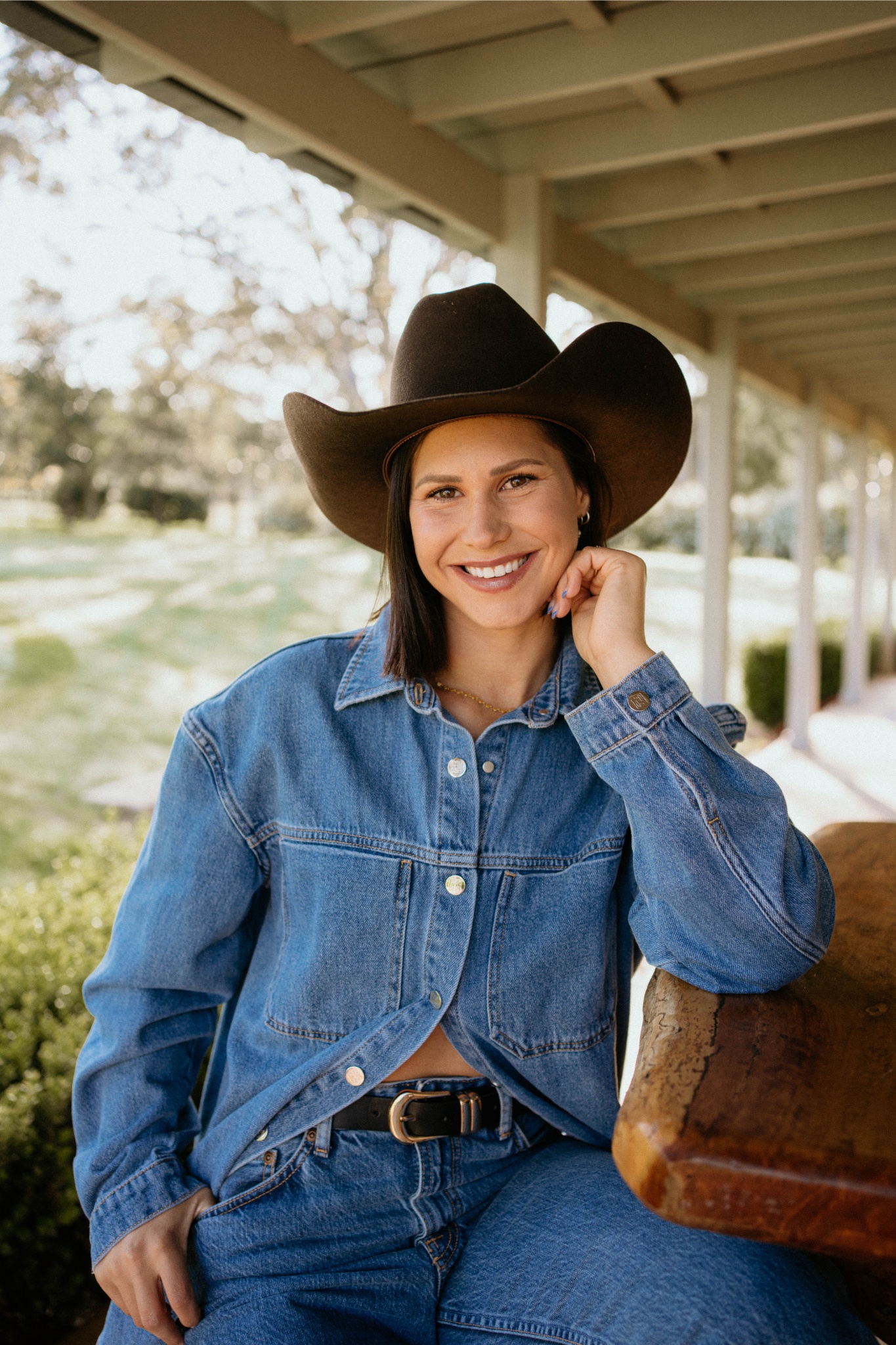
Hat: Newman in Chocolate, $245, by Stetson.
Photography Brianna Rolls from Blue Velvet Photography
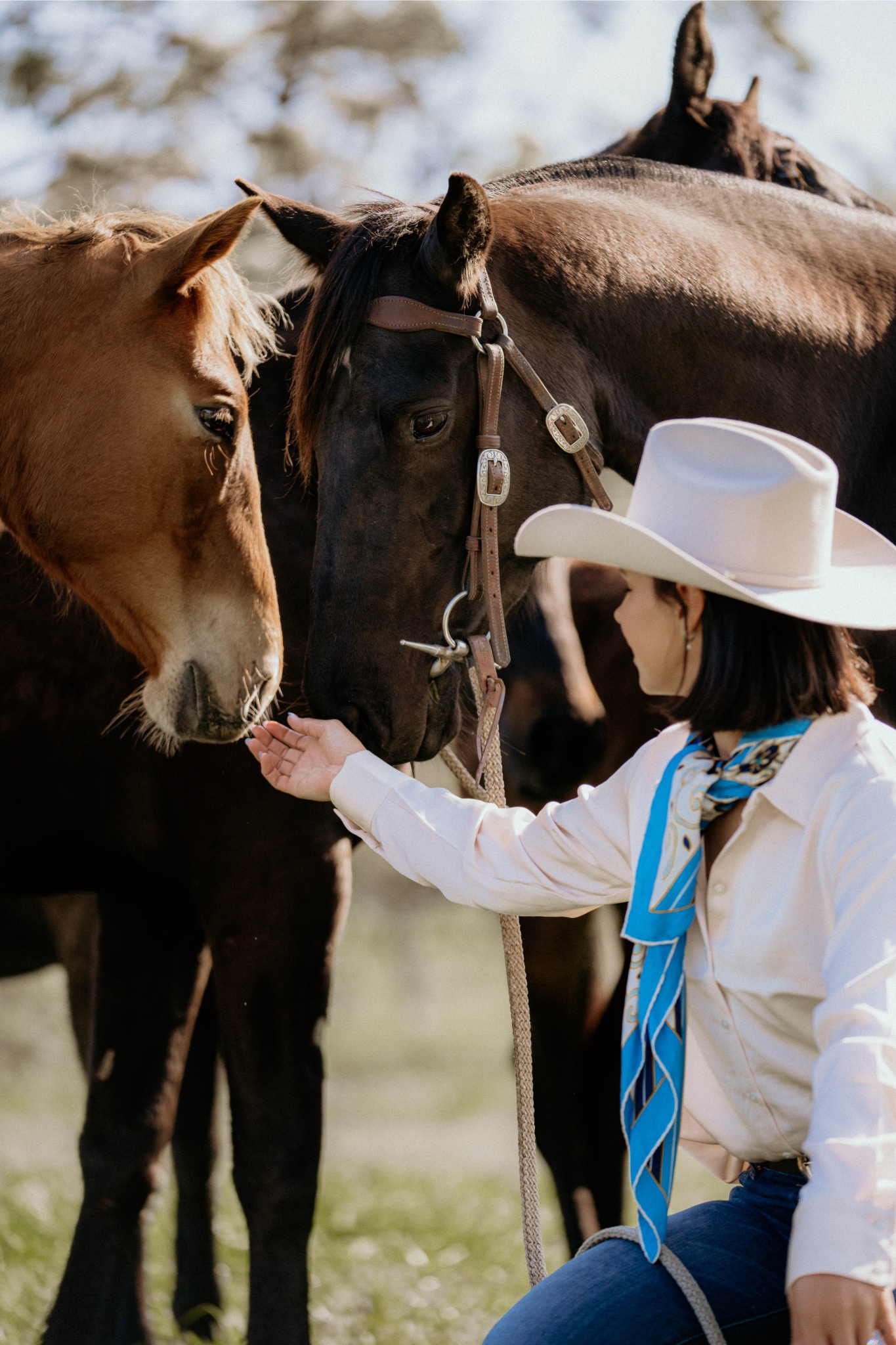
Hat: Colorado in Natural, $485, by Stetson.
Photography Brianna Rolls from Blue Velvet Photography
Demi Hayes has two great passions in her life — Rugby Union and the country.
The 26-year-old grew up on a cattle and horse property in rural Queensland, where she raced home every afternoon to help her parents out with the farm work. In high school, she started playing touch football and was later selected to represent the Darling Downs region and the state. In 2015, she competed at the Commonwealth Youth Games and won gold.
The following year, she made her Rugby debut for Australia in the Canada Women’s Sevens against Brazil. She represented Australia at the Tokyo 2020 Summer Olympics, won gold with the Australian sevens team at the 2022 Commonwealth Games in Birmingham, and was part of the team that won the 2022 Sevens Rugby World Cup in Cape Town, South Africa, in September 2022. Hayes also co-captained the team from 2021 to 2023.
Outside of Rugby, Demi currently runs a cattle and horse agistment business in the Upper Hunter Valley with her fiance, Simon Kennewell. She’s also studying a Bachelor of Media and Communications online through Griffith University.
Here, she talks to Graziher about how she pushed through early disappointments to establish her Rugby career, how she coped with taking a step back in 2024 to recover from an ACL injury and what the future has in store for her.
You grew up on a cattle and horse property in rural Queensland. Can you tell me a bit about your childhood and what you loved about growing up on the land?
I was born in Mount Isa but we actually lived in Far North Queensland and the Northern Territory for the first five years of my life. That’s where my love for the country really began. We then moved to Glenmorgan, which is in south west Queensland, and that’s where our real love of campdrafting and being part of the country community started. We had 19,000 acres where my parents ran Angus cattle. My siblings and I would get home from school and spend the afternoon helping our parents out with the mustering, branding and weaning. I feel so lucky that I was able to have that sort of upbringing.
Did you start playing sports young?
Yeah, I did. Mum and Dad were so supportive of us playing the sports we wanted to and they would drive us wherever we needed to go for regionals or state competitions. I remember Dad saying that I could play every sport under the sun while I was young but one day I would have to choose a sport and commit to it.
I played a lot of touch football growing up and then moved on to Rugby.
Were there any coaches who mentored and encouraged you in the early days?
Brenda Rackerman really encouraged me all through playing touch in high school. I tried so hard but never got selected to represent the area or the state. I remember she messaged me when I was 15 or 16, and I had missed out on being selected for the Darling Downs team for the third year in a row, and she said ‘I think that’s just really unlucky. If you come and play for me, I think you’ll get far more experience, and we’ll be able to show them that you’re better than the people they’re selecting’. So I started playing for her team and I got selected for Darling Downs and then the state team. She taught me not to be too disappointed and to keep working hard and pushing myself. That has definitely helped me in my Rugby career as well.
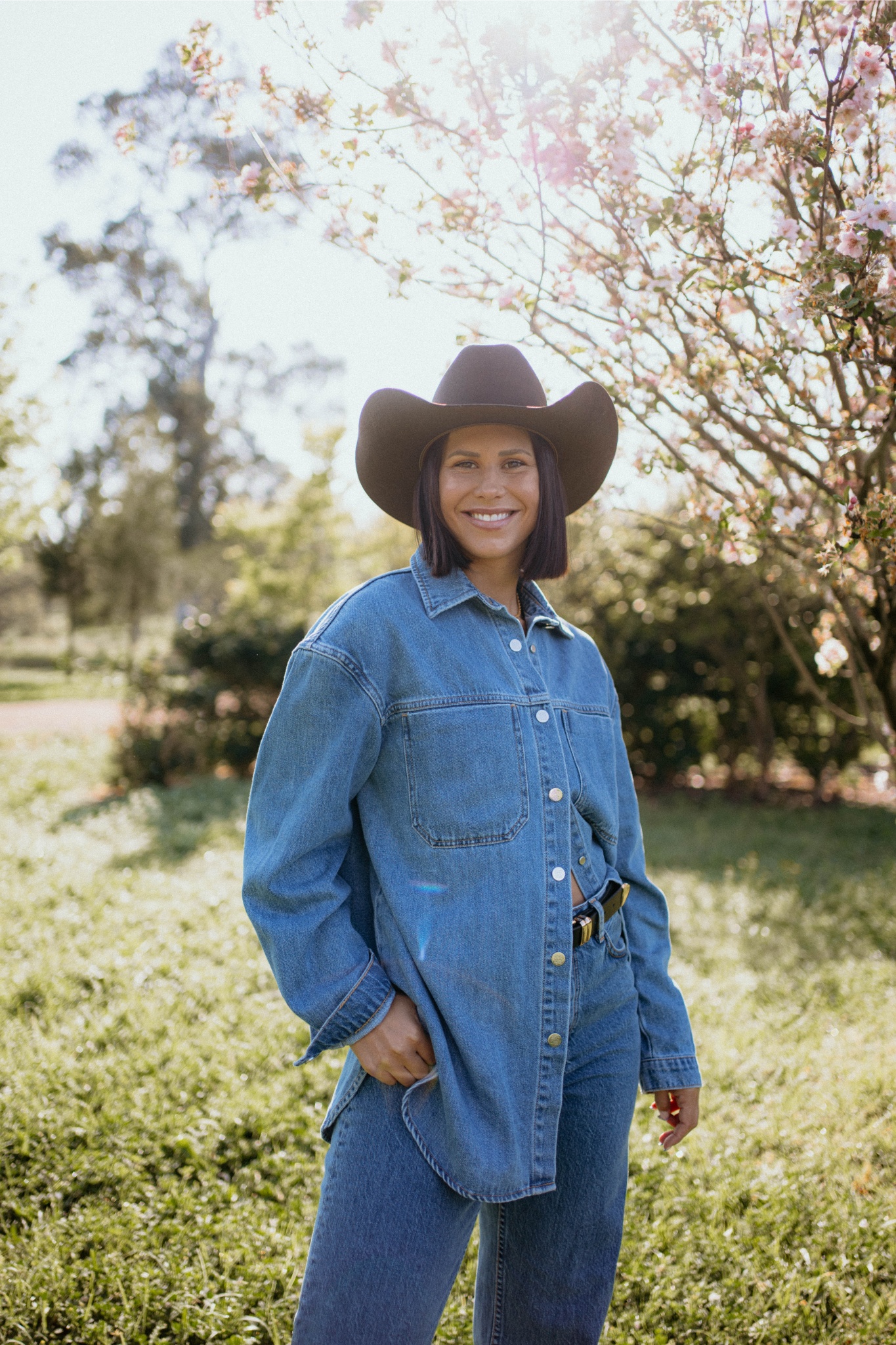
Hat: Newman in Chocolate, $245, by Stetson.
Photography Brianna Rolls from Blue Velvet Photography
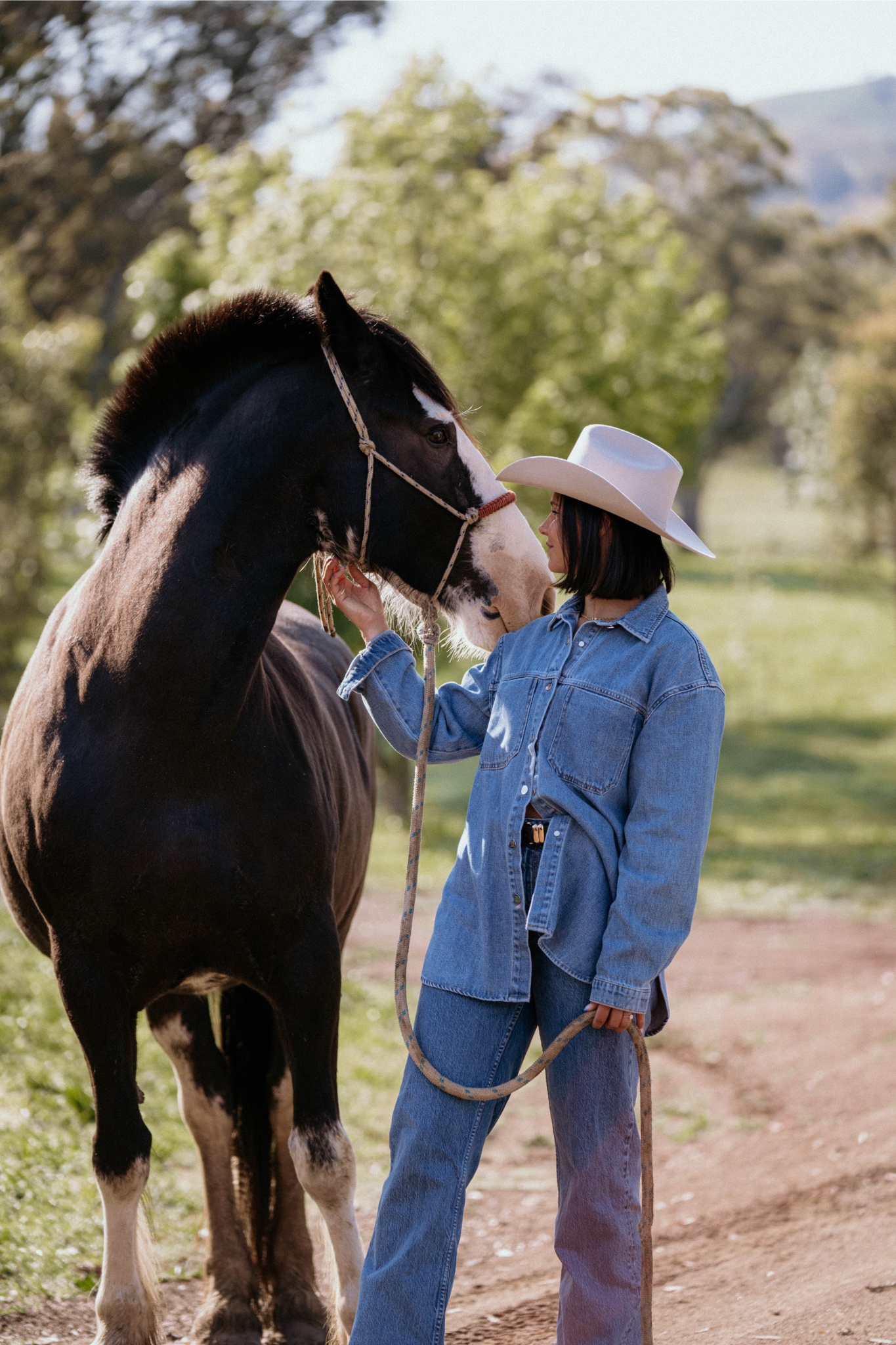
Hat: Colorado in Natural, $485, by Stetson.
Photography Brianna Rolls from Blue Velvet Photography
When did you realise that you could play professionally?
I think I first realised I could play professionally in Year 12, when I trialed for Queensland and played at nationals. The Australian team was selecting players for the 2015 Commonwealth Youth Games, and it was such an incredible experience to wear the Aussie jersey. But it wasn’t until after that, when I was offered a full-time contract to move to Sydney and play for the Australian squad, that I saw it as a real career. Before that, I didn’t know being a professional athlete could actually be a full-time job. Back then, it wasn’t financially sustainable, especially in Sydney, but now it’s an achievable goal for young girls, which is amazing to see.
Alicia Quirk gave you some words of encouragement early in your career – what did that mean to you?
Alicia’s words of encouragement really stuck with me. At the time, I was a 17-year-old coming to Sydney for training, feeling totally out of my depth. The girls were getting ready for Rio, and I was just starting out. Alicia told me she saw a lot of talent in me and that all the hard work would pay off eventually. She reassured me the nerves and effort would lead to something great. Just a week later, I got the call to make my debut, and I remember Alicia saying, “I told you it would happen!” Having her believe in me, especially as a young player, meant so much. It gave me the confidence to keep pushing.
You suffered a bit of a setback when you injured your ACL in 2023. How did you get yourself through that period of healing?
When I did my knee, I knew the Olympics were just seven months away, and it felt like a huge setback. I went through a lot of emotions—first, mourning the loss of that opportunity, especially after missing the World Series due to a back injury earlier in the year. Rehab was mentally and physically draining, and watching my team push for gold while I could barely walk was hard. But the hardest part was the isolation and having to face the mental struggle of not being able to compete.
However, coming back to play in Dubai a couple of weeks ago was huge. I felt no fear—just pure gratitude to be fit and healthy again. When we won the tournament, I realised how much I’d grown through that injury. It taught me to let go of expectations and embrace whatever comes. I was more emotional than nervous, and after such a tough year, I just appreciated being back on the field.
What advice would you give to other young players who are facing a similar situation?
My biggest advice would be to feel how you need to feel. It’s okay to be sad, to cry, or to take a step back if you need it. Don’t rush through the emotions—take the time to process them. I found that being supported by my family and fiancé was crucial, and surrounding myself with positive, uplifting people made all the difference. You can’t afford to be around negativity, especially during tough times. Deal with each moment as it comes, and focus on being around people who help you stay strong and positive.
Where do you think you got your drive and determination from?
I definitely get my drive and determination from my parents. They’re very different, but they both instilled in me a strong work ethic through their hard work on the land. I’ve always believed that hard work beats talent, especially when talent doesn’t work hard, which is something they’ve shown me time and again. Even after nine years in my career, I still push myself to be as professional as possible—whether it’s warming up properly or giving my best in every training session. It’s all about putting in the effort, and I learned that from them.
What’s your favourite moment from your Rugby career so far?
My favourite moment was in 2022. After a tough Olympics in Tokyo, I co-captained the team to what we called the ‘Triple Crown’. We won the Rugby Sevens World Series, then a gold medal at the Commonwealth Games in Birmingham, where my parents were there to watch. A few months later, we won another gold at the Sevens World Cup in Cape Town, and they were there too. That whole year, with that team, was unforgettable. Winning isn’t everything, but the memories we made and the achievement of winning the Triple Crown—something so rare—makes it my standout moment.
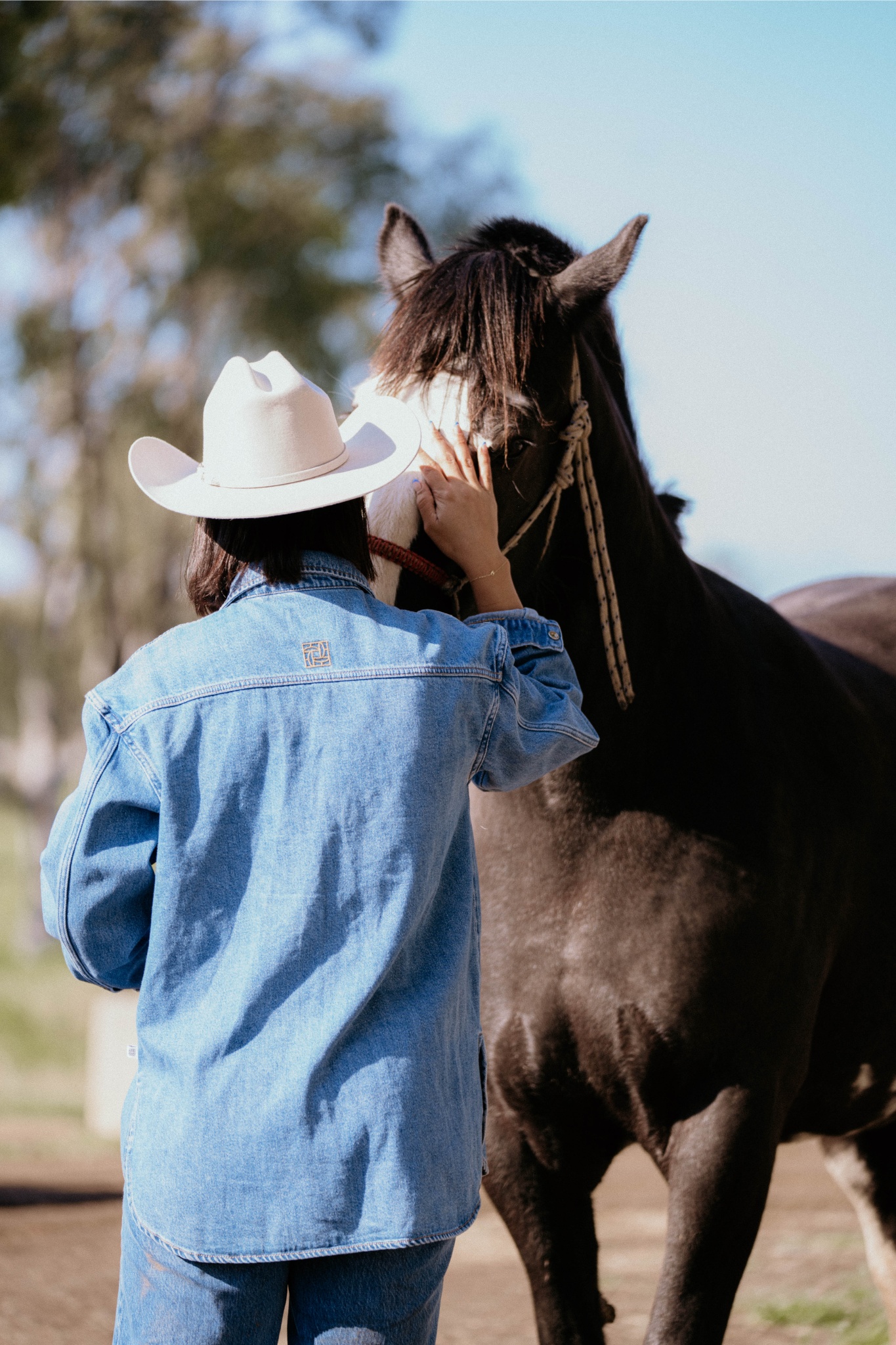
Hat: Colorado in Natural, $485, by Stetson.
Photography Brianna Rolls from Blue Velvet Photography
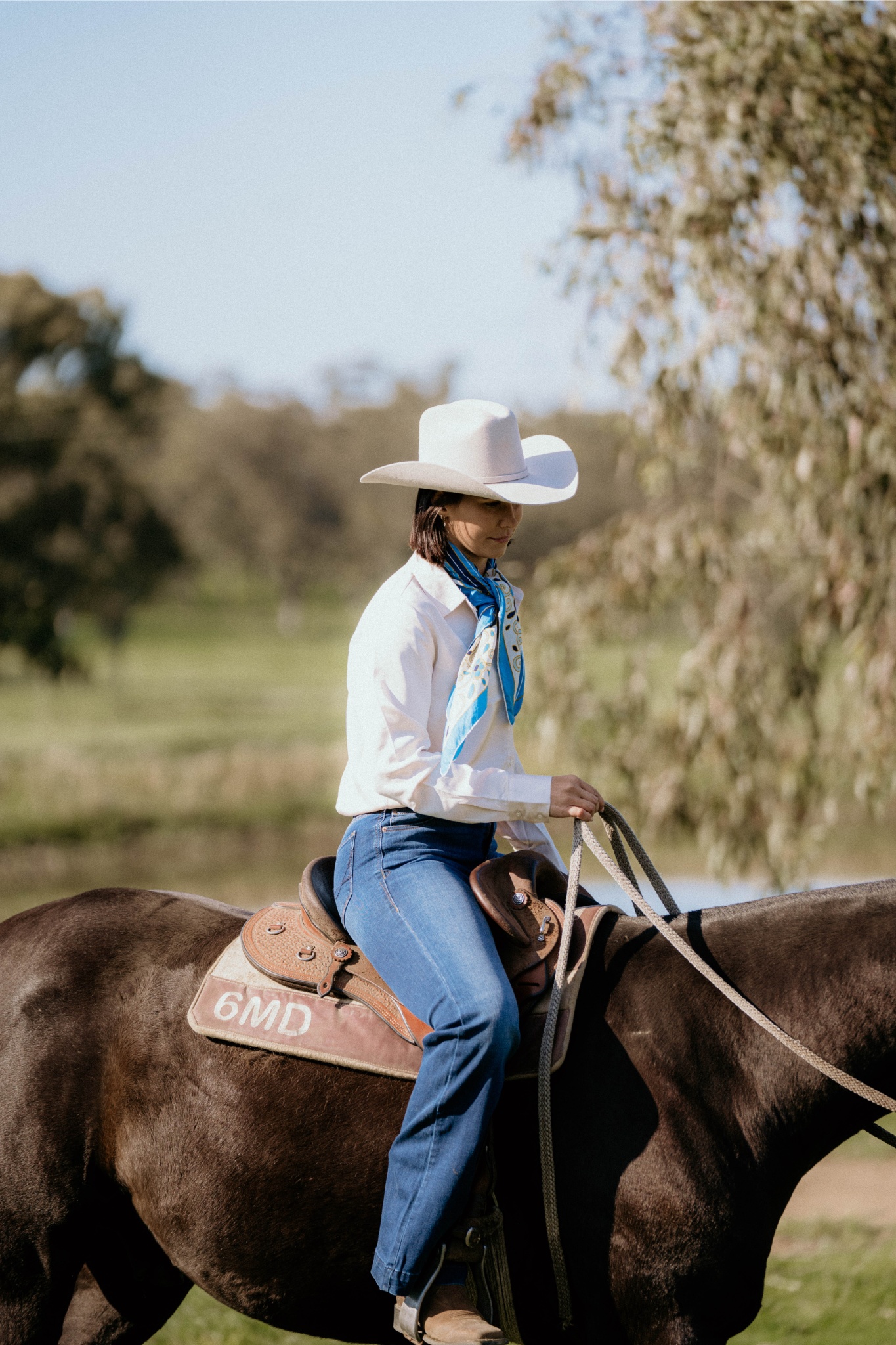
Hat: Colorado in Natural, $485, by Stetson.
Photography Brianna Rolls from Blue Velvet Photography
Your fiance Simon was also a Rugby Sevens player. How did you meet?
We met through Rugby Sevens! We were kind of friends. We both went to the 2015 Commonwealth Youth Games, which was a weird coincidence, and then we met again through Rugby Sevens and started dating.
You now own a business together. Can you tell me a bit about that?
Yes, we do! We’ve got a small property outside of Scone, in the New South Wales Hunter Valley region, where we run an Angus cattle breeding operation and a horse agistment business. It’s a fun side venture at the moment and we’re looking forward to growing it in the coming years.
How do you balance working and living together?
We set a clear rule early on not to talk about Rugby unless one of us asked for advice. Rugby was our common ground, and we needed boundaries to keep it from dominating our relationship. What helped us thrive was how different we are—he introduced me to the city and the beach, while I showed him a lifestyle he never imagined, which he’s come to love. Despite our differences, we’ve learned a lot from each other and really enjoy both worlds. It’s been a great balance.
Finally, what are you most excited for in 2025?
We’re getting married next year, so that’s really exciting! On the Rugby front, I’m pumped for the World Sevens Series to continue, especially after starting the season with a win in Dubai. Staying injury-free and playing without fear is key for me, and I’m really looking forward to enjoying every moment on the field. I’ll also be playing for the Brumbies in the Super W this year, and I’ve put my hand up to be selected for the Wallaroos for the Women’s World Cup in England. It’s the first time I’ve done that, so there’s definitely some big challenges ahead!
This article is brought to you by Stetson.
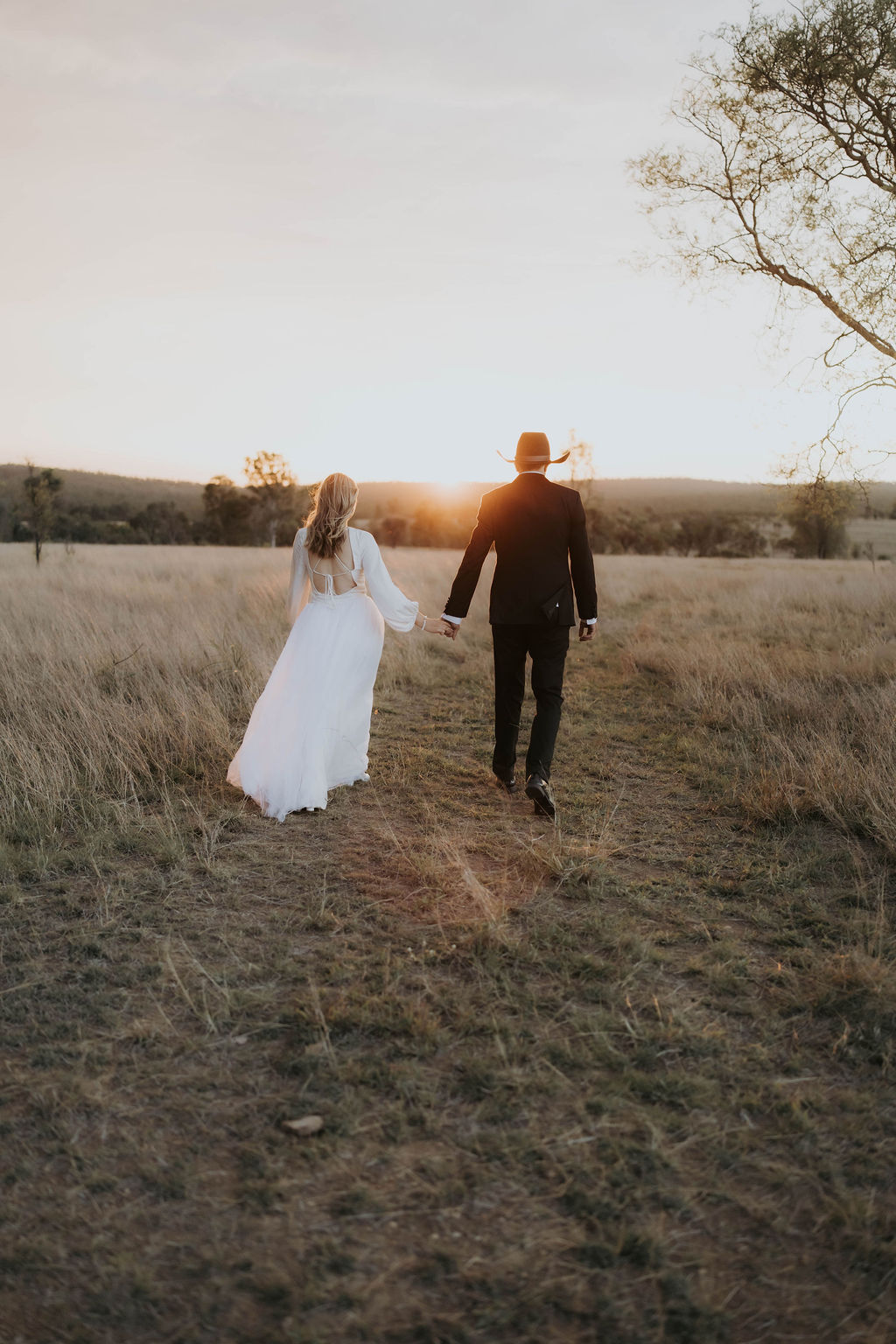
What began as a postcard-perfect country wedding soon became a story of survival, strength, and the unshakable heart of rural Australia.

Current custodian Penny Lamont says the heritage garden is designed for easy-care and dry times.